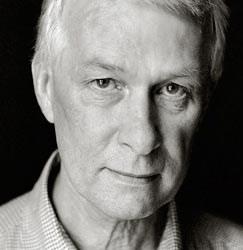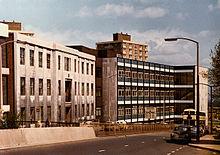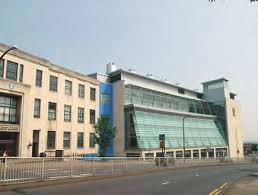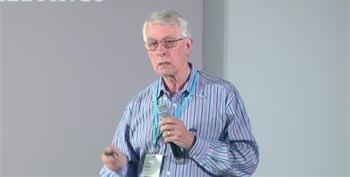
4 minute read
Interviewing Alumni: Sir Richard. J. Roberts
Interviewing Alumni:
This article will hopfully be the first in a series of articles aimed at inspiring and motivating the next generation of groundbreaking scientists. Each instalment will focus on a University of Sheffield’s ‘noteable’ alumnus, detailing their some of their experiences during their time spent at the university, how they got into their chosen fields and any advice they would pass on to the next generation of scientists.
Advertisement
This issue debuts an interview with Sir Richard. J. Roberts. One of the chemistry department’s most prized alumni, he has a whole building named after him!
Sir Richard. J. Roberts was born in 1943 in Derby. His interest in chemistry is said to have been first ignited at a young age when he was gifted a chemistry set.
Sir Richard attended the University of Sheffield, graduating with a Bachelor of Science degree in chemistry in 1965. He remained in Sheffield to complete his Ph.D in 1969. His thesis was focused on the phytochemical studies of neoflavonoids and isoflavonoids.
In 1993 Sir Richard shared the Nobel Proze in Physiology or Medicine with his collegue, an American biochemist named Phillip Allen Sharp. The prize was awarded for their independent work on the discovery of split genes. This discovery allowed for the transformation of the models used to understand how proteins are synthesised from genes, acting as a gate way to the prediction of new genetic processes and gene splicing. Ground-breaking advancements in his field!
I had the honour of conducting a short interview with Sir Richard, getting an insight into what inspired him and how he time in Sheffield shaped his scientific career.
Richard Roberts building in 2005 when it was first built (top) vs more recent times in 2019 (bottom).


What inspired you to persue science in further education and why did you choose to study at the Univeristy of Sheffield?
I discovered science when my parents bought me a chemistry set as a Christmas present when I was about 11. Prior to that I thought I would become a detective. When it came time to go to University, Sheffield and Southampton had the best chemistry departments, so I applied to both. Southampton turned me down, but Sheffield didn’t.
Are there any notable memories from your time at The University of Sheffield?
Too many to document. I remember seeing the first televised Beatles concert on a small TV in the student center. Some friends and I took a memorable driving/camping trip to Greece in a very small Post Office van that had been equipped with a fairly uncomfortable back seat from a bus. We ended up spending a week on a beach in Mykonos. I discovered physics was actually OK if it was taught properly. I met a Japanese postdoc, Kazu Kurosawa, who taught me more about experimental chemistry than anyone I had ever met. He also taught me to play Go and Shogi (Japanese chess).
How did your time spent here in Sheffield help you on your journey to where you are now?
One big factor was Kazu, who was such a good teacher that I finished everything I needed for my Ph.D. in one year and had two years to go
Sir Richard. J. Roberts
exploring. I spent a lot of time in the library and discovered a book called “The thread of life” by John Kendrew describing the origins of molecular biology. That set me on course to be a molecular biologist, so it had a huge impact.

‘The Thread of Life’ by John Kendrew - an inspiration to Sir Richard.

Would you be able to give us a brief insight into what it is you do now?
Sir Richard speaking in 2018, about a Nobel supporting GMOs. Laureate campaign
Bioinformatics and molecular biology. My research focusses on bacterial enzymes that methylate DNA. I also mobilize Nobel Laureates to support good causes that benefit humanity – like the present campaign to support GMOs, see QR link below for further details, and fight science misinformation.
Do you have any advice for young people who might be beginning their journey in the world of science?
Find your passion and make a career of it. That way you can make your hobby into your job and so never really have to work. It is all fun.
Do you have any further comments that you would like to give?
Some of this you can find in my autobiography on the Nobel web site, see QR link below for further detials. If you have other specific questions, I will do my best to answer them.
1. https://bit.ly/37Nv6FF 2. https://bit.ly/3kwlJh7
If you want to find out more then please find below QR links to Sir Richard present campaign supporting GMOs and his new autobiography on the Nobel website.








